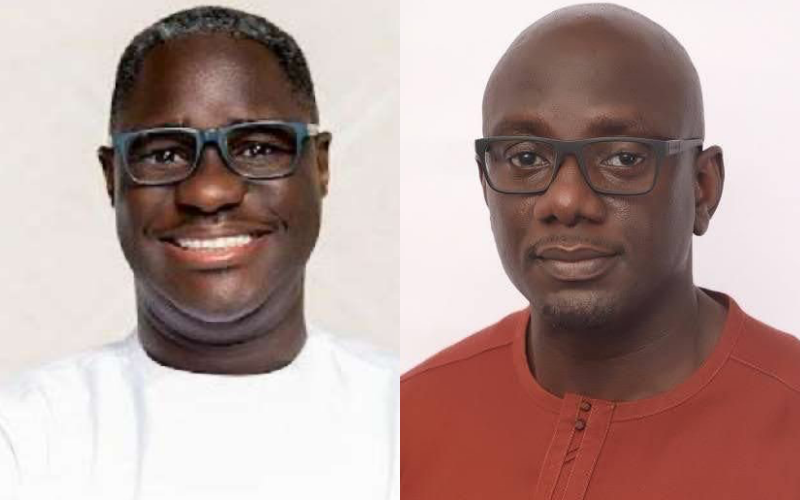The New Patriotic Party (NPP) in Ghana finds itself embroiled in a new internal conflict, exposing simmering tensions within the party ranks. The catalyst for this latest discord is a public critique of the party’s 2024 flagbearer, Vice President Dr. Mahamudu Bawumia, by Dr. Palgrave Boakye-Danquah, a former government spokesperson. Boakye-Danquah took issue with Bawumia’s reflections on the party’s recent electoral setbacks during his nationwide thank-you tour, accusing the Vice President of attempting to distance himself from the perceived failures of the Akufo-Addo administration. This accusation ignited a sharp response from within the NPP, highlighting the delicate balance the party is attempting to strike between self-reflection and maintaining a unified front.
The crux of Boakye-Danquah’s criticism stems from Bawumia’s candid assessment of factors contributing to the NPP’s declining electoral fortunes. During his tour, Bawumia pointed to several key issues, including what he perceived as the government’s arrogance of power, the rising cost of living, the failure to reshuffle key government appointees, the controversial E-Levy implementation, and the unpopular “haircut” policy associated with the IMF bailout. These admissions, while intended to signal a willingness to learn from past mistakes, were interpreted by Boakye-Danquah as an attempt by Bawumia to deflect responsibility for the government’s shortcomings. This interpretation fueled the escalating tension within the party and sparked a public exchange between opposing factions.
Eric Twum, a member of the NPP communications team, swiftly countered Boakye-Danquah’s accusations, characterizing them as misguided, divisive, and politically naive. Twum argued that it is both unfair and strategically unwise to hold Bawumia, as Vice President, solely accountable for decisions made within the Akufo-Addo administration, particularly those beyond his direct purview. He emphasized that Bawumia’s willingness to publicly acknowledge the party’s missteps should be viewed as an act of leadership and a commitment to course correction, rather than an attempt to disavow shared responsibility. Twum’s response underscores the emerging fault lines within the NPP and the differing perspectives on accountability and the path forward.
Adding further fuel to the fire, Twum expressed his disappointment with Nana Akomea, a respected figure within the NPP and a mentor to Twum, for engaging with Boakye-Danquah’s criticisms. Twum felt that Akomea’s response legitimized Boakye-Danquah’s position and that it should have been left to more junior members to address. This sentiment reveals the hierarchical dynamics within the party and the sensitivities surrounding public disagreements. Twum’s emotional response, including questioning Boakye-Danquah’s standing and contributions to the party, injected a personal element into the conflict, further intensifying the internal rift.
This internal squabble within the NPP highlights the complex challenges facing the party as it navigates the aftermath of a difficult electoral period. The public airing of grievances, coupled with accusations of disloyalty and differing interpretations of responsibility, exposes the underlying tensions and anxieties within the party. The NPP’s ability to manage these internal conflicts and project a united front will be crucial for its future electoral prospects. Failure to address these issues effectively could lead to further fragmentation and weaken the party’s ability to regain lost ground.
The clash between Boakye-Danquah and Bawumia’s supporters, as amplified by Twum’s impassioned response, underscores the critical juncture the NPP faces. The party must navigate the delicate balance between honest self-assessment, individual accountability, and maintaining a cohesive public image. The ability to reconcile these potentially conflicting objectives will significantly influence the party’s ability to rebuild, strategize for future elections, and regain public trust. The current infighting threatens to undermine these efforts and provides ammunition for opposition parties, further complicating the NPP’s path forward. The party leadership faces the difficult task of mediating these internal disputes and fostering a more unified and forward-looking approach to regain its political footing.


